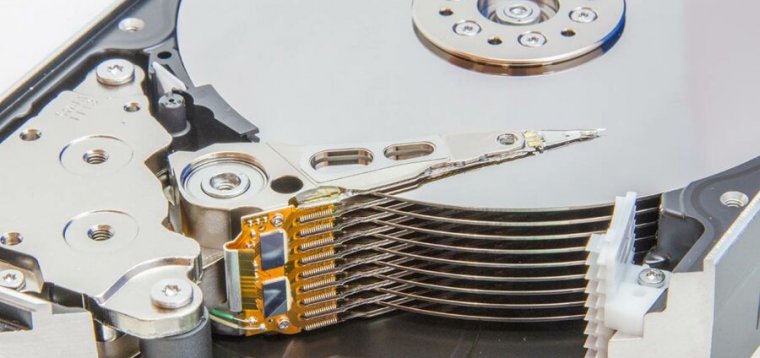根据来自Tom’s Hardware的一篇报道,微软计划从2023或2024年开始使电脑制造商使用固态硬盘作为启动盘,从而结束大多数品牌下仍然包含旋转的硬盘驱动器的日子。
According to a report from Tom’s Hardware, Microsoft plans to make PC makers ship solid-state boot drives in all Windows PCs starting in 2023 or 2024, putting an end to the days of spinning hard drives for most of the PC brands that still include them.
来自Trendfocus的分析师John Chen声称微软一开始尝试在2022年做出这项变化,但是来自生产商的阻力意味着“它被推迟至明年的某个时候”。微软和电脑制造商还在商讨时间线和可能的例外情况,“但是事情还在不断变化“。
Trendfocus analyst John Chen claims that Microsoft initially tried to make the change in 2022, but that resistance from manufacturers meant “it has been pushed out to sometime next year.” Microsoft and the PC manufacturers are still negotiating the timeline and possible exceptions, “but things are still in flux.”
我们联系了微软,戴尔,惠普和宏基以获得评论,大多数还没有回应。一个戴尔的代表指出几乎自己所有的产品都已经预装了固态硬盘,但是不能确认或否认那位分析师的话。
Ars contacted Microsoft, Dell, HP, Lenovo, and Acer for comment; most haven’t responded. A Dell representative pointed out that nearly all of its systems already ship with SSDs but couldn’t confirm or deny the analyst’s claims.
这带来了一个很好的话题:大多数的新机器,从便宜的基础级笔记本到游戏电脑再到高级的超极本,它们都已经自带固态启动硬盘好几年了。一些固态存储介质比其他的好——便宜的eMMC存储器速度和最便宜的NVMe SSD速度无法相比——但是在那时也只有最最便宜的电脑会使用机械硬盘作为它们的主要存储器。
Which brings up a good point: The vast majority of new systems, from bargain-basement laptops to gaming desktops to premium Ultrabooks, come with SSD boot drives and have done so for years. Some solid-state storage is better than others—cheap eMMC storage in a budget laptop will be nowhere near as fast as the cheapest NVMe SSD—but these days only the budget-iest of budget desktops still use hard drives as their primary storage.
微软也维护着一些针对电脑制造商的要求,这些要求随着不同Windows系统的要求而改变。早在Windows 11在所有电脑上要求时,制造商就被要求默认启用安全启动等功能和受信任的平台模块(TPM)好几年了。这意味着就算电脑制造商不能把一个使用机械硬盘作为系统盘的电脑卖给您,如果您有特殊需求,Windows不太可能拒绝在机械硬盘上安装。现在对于Windows 11的系统要求64GB或更多空间,但没有指明是哪种存储介质。
Microsoft also maintains requirements for the PC manufacturers that are different from Windows’ core system requirements. The manufacturers were required to ship and enable features like Secure Boot and a Trusted Platform Module (TPM) for years before Windows 11 began requiring them for all Windows installs. Which is to say, even if the PC companies can’t sell you a computer with a rotational hard drive as the boot disk, it’s less likely that Windows will refuse to install on a rotational hard drive if you need it to for some reason. The current system requirements for Windows 11 stipulate 64GB or more of storage capacity but don’t specify what kind of storage to use.
在戴尔和惠普的网站上进行粗略的查询,再加上Newegg上新台式电脑的排名都指出微软对于固态硬盘的强制要求会影响美国两部分的电脑买家。一种是最低端的电脑市场,在那里Pavilion和灵越等电脑仍然没有自带固态硬盘。第二则是商务电脑市场,那里Optiplex,Vostro和ProDesk电脑在自己的基础型号中使用机械硬盘,Chen指出,这项要求会对美国之外那些对于价格敏感的“发展中市场”造成更严重的影响。
A cursory check of Dell’s and HP’s websites plus new desktop listings on Newegg suggests that an SSD requirement would primarily hit two market segments for US PC buyers. One is the very bottom-end of the consumer desktop market, where a handful of Inspiron and Pavilion systems still ship without SSDs. The other is the business desktop market, where Optiplex, Vostro, and ProDesk systems include HDDs in base models. As Chen notes, the requirement could also hit harder in more price-sensitive “developing markets” outside the US.
那些仍在使用机械硬盘的机型压倒性地使用了1TB容量的硬盘,由于一个好的名牌1TB机械硬盘和一个入门级的250GB或500GB的固态硬盘都可以用40-50美元买到,至少制造商可能可以换至固态硬盘而不用涨价(虽然制造商购买电脑组件的价格和最终用户的不同)。把那些容量交换为更快的速度是大多数人的正确选择——不是每个人都有要在本地存储的1TB数据,但是每个人都会从更快的启动速度,更短的打开应用和游戏时间和多任务处理中受益。
The systems that still use spinning hard drives overwhelmingly use 1TB models. Given that a good name-brand 1TB hard drive and an entry-level 250GB or 500GB SSD can all be had for between $40 and $50, it should at least be possible for the manufacturers to make the switch without raising prices (though manufacturer pricing for PC components is different than it is for end users). Trading that capacity for hugely increased speeds is the right move for most people to make—not everyone has 1TB of data they need to have stored locally, but everyone will notice and benefit from faster booting, app and game launch times, and multitasking.
即使在家用电脑上基本消失,机械硬盘仍在进化。现在大部分的努力都聚集在使用新的数据记录技术来增大硬盘的容量。希捷声称在2030年之前造出100TB容量的机械硬盘,同时西部数据发布了针对数据中心和其他有存储大量数据需要客户的大容量22TB和26TB硬盘。
Even as they mostly vanish from consumer PCs, hard drives continue to evolve. Most of the effort now is focused on increasing the capacity of drive platters using new data-recording technologies. Seagate claims to be aiming for 100TB hard drives by 2030, while Western Digital announced large 22TB and 26TB hard drives for data centers and other customers with high-capacity storage needs.
原文:Report says Microsoft will require SSDs for new PCs soon, but is it a big deal? | Ars Technica

Comments